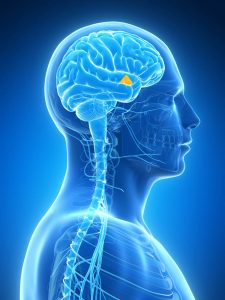While many employees enjoy an average work schedule of 9 a.m. to 5 p.m. Monday through Friday, many modern jobs keep people working around the clock in rotations, an alternative schedule known as shift work. Shift workers operate outside of the general nine-to-five grind, often working late hours, rotating their hours from week to week or even working shifts that continue through dawn. Although shift work plays a necessary role in many industries, such as transportation, law enforcement and healthcare, it has its pros and cons. One of the biggest downsides to working irregular hours is that shift work negatively affects our biological rhythms. Read on to learn how.
Shift Work and Sleep Disorders
While shift work is, in essence, any schedule that’s performed in rotations, these rotations can take on a variety of forms.
 Night Shift: Night shift describes any shift that requires working through the night, for example 9 p.m. to 5 a.m. Night shift is also known as the graveyard shift.
Night Shift: Night shift describes any shift that requires working through the night, for example 9 p.m. to 5 a.m. Night shift is also known as the graveyard shift.
Split Shift: In a split shift, an employee must take on two separate shifts in the same day to accumulate their total working hours. For example, a split shift employee might work from 7 a.m. to 11 a.m., then return from 5 p.m. to 9 p.m.
Swing Shift: A swing shift typically beings in the afternoon, and continues on into the night, for example, from 3 p.m. to 11 p.m.
Rotating Shift: While other types of shift work schedules are generally fixed, meaning that the start and end times do not change, nor do the days of the week, in a rotating shift hours and days wokred may vary from week to week.
One of the main cons of shift work is that working non-traditional hours that do not align with the earth’s natural day/night cycle can disrupt the circadian rhythm, resulting in sleep problems. In fact, there is a sleep disorder specific to shift workers called shift work sleep disorder, which is brought on by difficulty adjusting to a non-traditional sleep-wake cycle. Shift work sleep disorder can manifest as excessive sleepiness when awake, yet an inability to fall asleep or stay asleep when desired.
Take for instance, a graveyard shift worker at a nighttime construction job. Like many shift workers, he or she may find it difficult to sleep during the day, when rest is necessary. Then, when the nighttime shift arrives, they consume one cup of coffee after another to keep the REM pressure at bay, with the constant urge to sleep nagging them throughout the night.
All it takes is for an over-tired, heavy-machinery operator to doze at his post to create a dangerous situation. The demands of the job require those working the graveyard shift to press on, while their biological clock is saying it is time to sleep. Even when the shift is over, the minute the exhausted worker gets behind the wheel, the potential for dozing while driving becomes a hazard to other unsuspecting drivers as well.
Although the dangers of not obtaining adequate sleep have been well documented for years, many people are still unaware of the negative impact burning the midnight oil has on their internal biological rhythms and overall health.
The Science of Chronobiology
Located in the hypothalamus, in an area called the suprachiasmatic nucleau (SCN), every human is equipped with a biological clock. This internal clock governs the timing of biological rhythms. It anchors the body into a mostly regular 24-hour cycle, referred to as a circadian rhythm.
When a person lacks access to normal timing cues from the environment, such as the changes in natural light produced by the positioning of the sun over a 24-hour period, the circadian rhythm will default to a roughly 24.3-hour periodic cycle. Scientists doing research in the field of chronobiology have recently found evidence of genetic factors which suggest that each individual’s circadian rhythm’s periodicity is a result of genetic inheritance.
Aside from studying the role genetics has on biological rhythms, a significant portion of the study done in the field of chronobiology centers around occupational and pathological problems that produce biological rhythm-related disorders.
How Shift Work Negatively Affects Our Biological Rhythms
Since shift workers regularly operate on a schedule that opposes the body’s inherent circadian rhythm, these disruptions have become a major source of concern for chronobiologists and other medical practitioners. Frequent disruptions of the body’s normal rhythms have been linked to a number of detrimental health disorders, ranging from sleep problems to serious medical conditions like immune disfunction, impaired metabolism, obesity, diabetes, cognitive and behavioral disorders, digestive disorders, fertility problems, mood disorders and cardiovascular disease.
It has also been observed that people who frequently travel across time zones end up experiencing many undesirable results such as jet lag. This condition, which occurs when the body’s internal clock becomes desynchronized with the environment outside, produces symptoms of sleepiness, irritability, lowered immunity and even gastrointestinal distress. Recent findings have also shown that the mild oxygen deprivation that passengers experience while on long flights can also result in a reduction in nighttime peak melatonin levels. Consequently, shift workers who also fly frequently because of their job could be at an increased risk of biological rhythm-related health disorders.
Improve the Health Consequences of Shift Work

Minimizing exposure to light when traveling home from nighttime shifts can help to keep light cues from triggering the body’s inner clock, helping to fall asleep more easily. Keeping the bedroom or sleep area as dark as possible and taking care to eliminate daytime noises in the household can also help to promote better sleep.
Another important measure to consider is to significantly reduce or eliminate the amount of caffeine in the diet. Caffeine has a stimulating effect on the body, which will cause the body to feel awake when it should be preparing to sleep. Avoiding exercise in the hours before bedtime is also recommended to those who are trying to get into a habit of normalizing their biological rhythms.







